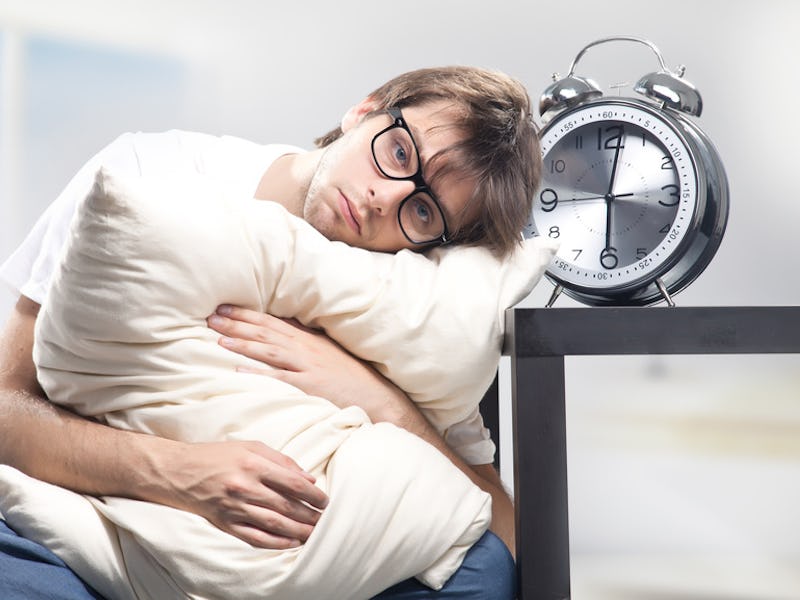Scientists Finally Understand the Link Between Depression and Bad Sleep
"Sleep and depression go hand in hand."

Approximately 75 percent of people diagnosed with depression say that they suffer from terrible sleep. On the other side of the same coin, people who consistently suffer restless nights have a high risk of developing depression. But because of a study released Wednesday in JAMA Psychiatry a treatment for the one-two punch of depression and sleeplessness might be on the horizon.
“Sleep and depression go hand in hand,” University of Warwick professor Jianfeng Feng, Ph.D. tells Inverse. “We have worked on this area for many years and bad sleep is a core symptom for depression.”
Feng, a co-author of the new study, says that it’s historically been difficult to pin down what drives the relationship between sleep and depression but his team is the first to identify a neural link between the two states. They found that there’s functional connectivity between the areas of the brain associated with short-term memory, self, and negative emotions. This functional connectivity — a term describing separate parts of the brain are connected by the patterns of active neurons — explains why some brains can’t help but decide that three o’clock in the morning is the right time to ruminate on everything that’s going wrong.
Depression and sleeplessness go hand in hand.
“An important part of the research was that we showed that in a population from the US, available because of the Human Connectome Project, the orbitofrontal cortex had increased functional connectivity with the other brain regions in people with depressive problems,” co-author and fellow University of Warwick professor Edmund Rolls, Ph.D. tells Inverse, referring to the large-scale effort to map the complete structural and functional neural connections within the human brain. “Understanding the brain systems better that are involved in depression provides new insight into possible treatments.”
The scientists evaluated the data of 1,017 Americans between the ages of 22 and 35 that took part in the Human Connectome Project. This data set included fMRI scans of participants, which showed changes in brain activity as measured by changes in blood flow. A total of 162 functional connectivity neural links involved in the areas of the brain associated with sleep were identified from these scans.
Green marks the orbitofrontal cortex, which is linked to problems with sleep and depression.
Furthermore, 39 of these 162 links are also associated with the multiple parts of the brain known to be involved in depressive episodes.
While anyone who’s experienced the difficulty of depression or insomnia may not be surprised that they’re connected, this study marks the first time scientists can definitively say there are neural mechanisms underlying the relationship between the two. Because they were able to identify specific brain regions, the scientists think that forms of treatment, like repetitive transcranial magnetic stimulation (rTMS), could be used to treat depression-linked sleeplessness. In rTMS, doctors use a magnet to target and stimulate parts of the brain in instances when medication and psychotherapy fail to help the patient.
Feng says that research teams in Canada have already targeted the lateral orbitofrontal cortex of depressed people with rTMS and have reported “satisfactory outcomes.” In today’s world, he emphasizes, it’s more than necessary to find a treatment that can help. Insomnia is the world’s second most prevalent mental disorder, and 216 million people across the globe are affected by depression.
Interested in learning more? Check out this video on a newly discovered type of depression: